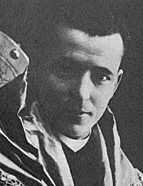

From the period before his accession to the episcopate, Cerejeira travelled to Spain and France, either privately, accompanying student outings or on academic work, as in the case of the Cádiz Conference. When he was invested with episcopal functions, in addition to several stays in Italy, where he took part in the Concilium work between 1962 and 1965, he was Pontifical Legate on several occasions, when he visited the various overseas territories (1944), Goa, on the occasion of the centenary of the death of St Francis Xavier (1952), and Brazil, for the inauguration of the new capital (1960).
On 29 November 1958, in the Sala dos Capelos, he gave a lecture on The condition of the Christian in the historical construction of the world on the occasion of his jubilation as Professor of the Faculdade de Letras da Universidade de Coimbra [School of Arts and Humanities of the University of Coimbra]. He brought to a close the academic career that had stopped when he was ordained a bishop in 1928, which would lead him to the patriarchal chair of Lisbon and the cardinal’s purple the following year. He had been a corresponding member of the Real Academia de la Historia in Madrid since 19 April 1921, and accepted a similar position at the Academia Brasileira de Letras in 1964, having refused to be elected to the Academia das Ciências de Lisboa in 1929.
While Patriarch, he wanted to continue asserting himself as a historian, a double condition not without some ambiguity, which, incidentally, was the confessed origin of the work that Sílvio Lima published in 1930 entitled Notas críticas ao livro do Sr. Cardial Cerejeira “a Igreja e o Pensamento Contemporâneo” [Critical Notes on the Book by Cardinal Cerejeira “The Church and Contemporary Thought”] (see p. 7, 2 nd edition 1931), although Cerejeira’s book in question had no historiographical intentions. While he did not focus on ecclesiastical history, he nonetheless provided support, including financial backing to the Centro de Estudos de História Eclesiástica [Centre for the Study of Ecclesiastical History], which was created outside academia in 1956, but in 1984 became part of the Universidade Católica Portuguesa [Portuguese Catholic University], an institution founded by Cerejeira in 1968, fulfilling an intention he had formulated as a Coimbra professor in the 1920s. When he retired from the patriarchal chair, he continued to work on his thoughts on Clenardus , particularly translating the Flemish humanist’s correspondence (PT/AHPL/PAT14-PR).
This work is financed by national funds through FCT - Foundation for Science and Technology, I.P, in the scope of the projects UIDB/04311/2020 and UIDP/04311/2020.
